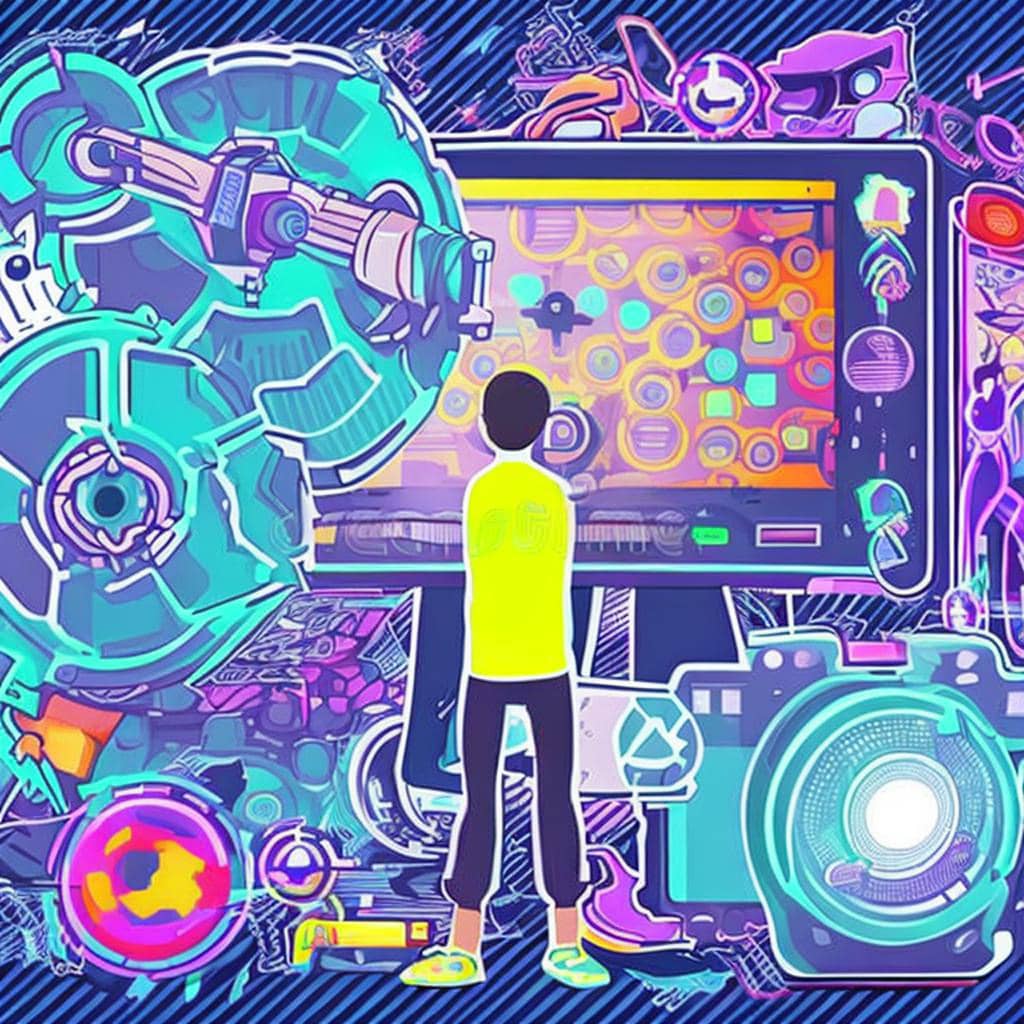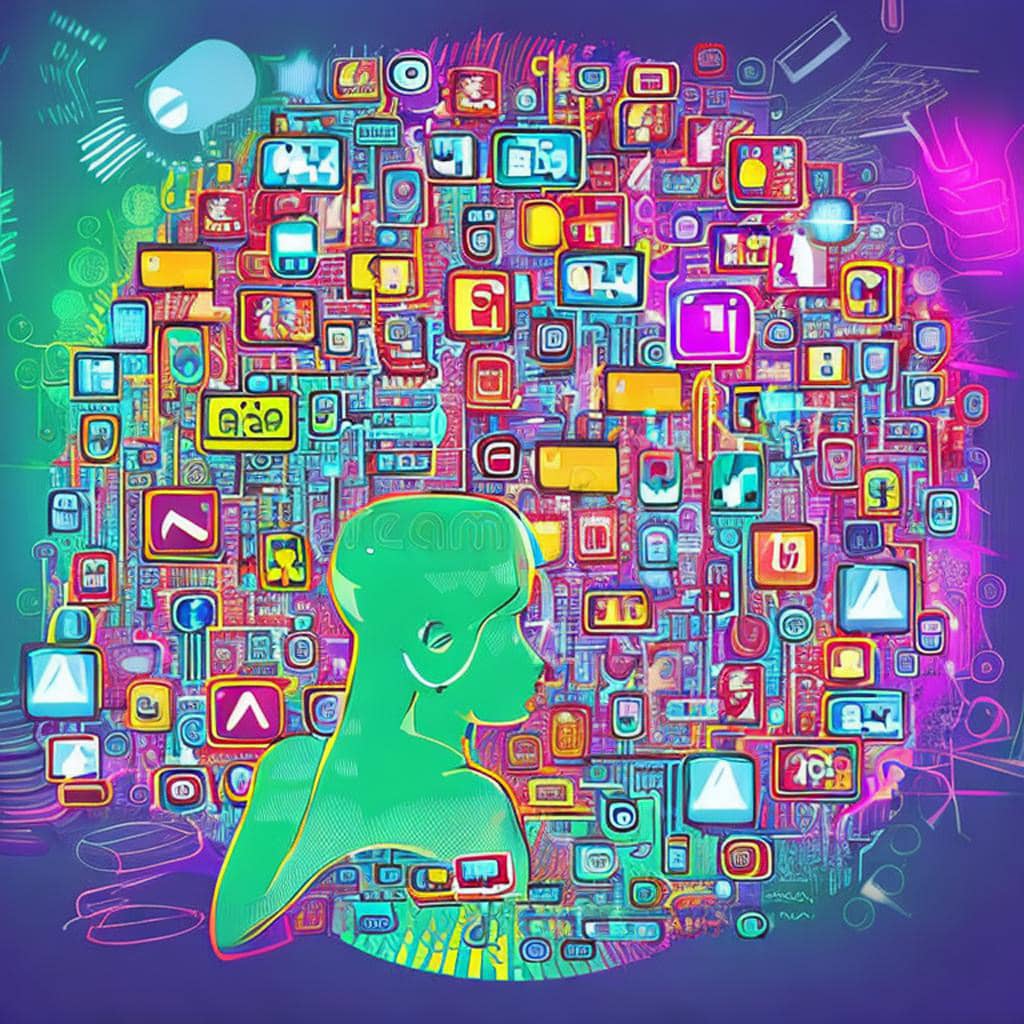AI and addiction
Artificial Intelligence (AI) is a rapidly advancing technology that has the potential to revolutionize many areas of our lives, including addiction treatment and prevention. However, AI itself is not addictive, but rather the ways in which AI technology is used or misused can lead to addiction.
For example, video game addiction is a growing concern, and AI-powered games can be particularly engaging and addictive. AI can be used to create games that adapt to the player’s behavior, providing an ever-changing and personalized experience that can be difficult to resist.
Similarly, social media platforms and other online services that use AI algorithms to curate content and suggest personalized recommendations can also be addictive. The constant stream of notifications, likes, and other social rewards can trigger a dopamine rush in the brain, leading to compulsive use and addiction.
However, AI can also be used to help prevent addiction and provide better treatment options for those struggling with addiction. For example, AI algorithms can be used to analyze large amounts of data and identify patterns of risky behavior, allowing early intervention and prevention.
AI can also be used to develop more personalized and effective addiction treatment plans. By analyzing a patient’s behavior patterns and responses to treatment, AI can help clinicians tailor treatment plans to meet the individual’s specific needs, leading to better outcomes and lower rates of relapse.
AI has the potential to both contribute to and address addiction, depending on how it is used. As with any technology, it is important to use AI in a responsible and ethical manner to minimize potential harms and maximize its benefits.
Table summarizing the potential ways in which AI can contribute to or address addiction
| AI and Addiction | Examples |
| Ways AI can contribute to addiction | AI-powered video games that adapt to the player’s behavior and can be addictive. Social media platforms that use AI algorithms to curate content and trigger a dopamine rush in the brain. |
| Ways AI can address addiction | Analyzing large amounts of data to identify patterns of risky behavior and enable early intervention and prevention. Developing personalized addiction treatment plans tailored to the individual’s specific needs. |
The potential contributions or solutions provided by AI are not exhaustive and that AI can be utilized in multiple ways to address or contribute to addiction.

The Double-Edged Sword: How AI Can Contribute to Addiction
Artificial Intelligence (AI) has revolutionized many aspects of our lives, and its potential to transform the field of addiction treatment is no exception. With its ability to analyze large amounts of data and develop personalized treatment plans, AI holds tremendous promise for improving addiction outcomes. However, as with any technology, there is a downside to AI’s potential, and it can also contribute to addiction in significant ways.
AI-Driven Video Games
One of the most significant ways in which AI can contribute to addiction is through AI-driven video games. As AI technology advances, game developers can create games that adapt to the player’s behavior, providing an ever-changing and personalized experience that can be difficult to resist. AI-powered video games can keep the player engaged for extended periods, creating an immersive experience that can lead to addiction.
Game developers can also use AI algorithms to analyze player data, such as playing style, skill level, and preferences, to create more personalized gaming experiences. This can lead to an increase in the frequency and intensity of gameplay, contributing to addiction.
Social Media Platforms
Another significant way in which AI can contribute to addiction is through social media platforms. These platforms use AI algorithms to curate content and suggest personalized recommendations, keeping users engaged for longer periods. The constant stream of notifications, likes, and other social rewards can trigger a dopamine rush in the brain, leading to compulsive use and addiction.
Social media platforms also use AI to track user behavior and collect data that can be used to tailor content and advertisements to the user’s preferences. This can create a feedback loop that reinforces addictive behaviors, leading to prolonged use and addiction.
Prevention and Early Intervention
Despite the potential for AI to contribute to addiction, it can also be used to prevent addiction and enable early intervention. AI algorithms can analyze large amounts of data, such as electronic health records, social media posts, and smartphone data, to identify patterns of risky behavior. This can enable healthcare professionals to intervene early and prevent addiction before it develops.
Moreover, AI can be used to develop personalized addiction treatment plans. By analyzing a patient’s behavior patterns and responses to treatment, AI can help clinicians tailor treatment plans to meet the individual’s specific needs, leading to better outcomes and lower rates of relapse.
However, the use of AI in addiction treatment and prevention raises ethical concerns, such as privacy and data protection, as well as concerns over the potential for AI to replace human judgment and decision-making.
Conclusion
In conclusion, AI has the potential to both contribute to and address addiction. While AI-powered video games and social media platforms can be highly engaging and addictive, AI can also be used to prevent addiction and enable personalized treatment plans. However, as with any technology, it is crucial to use AI in a responsible and ethical manner to minimize potential harms and maximize its benefits.
As the field of AI continues to evolve, it is essential to monitor and regulate its use to ensure that it serves the best interests of society. With proper regulation and ethical considerations, AI can be a powerful tool in the fight against addiction, but we must also be aware of its potential to contribute to the problem.

AI as a Tool for Addressing Addiction
Artificial Intelligence (AI) has the potential to transform the field of addiction treatment, offering new ways to analyze data, develop personalized treatment plans, and prevent addiction before it develops. By leveraging the power of AI, healthcare professionals can address addiction more effectively, tailoring treatment plans to individual patients and intervening earlier in the addiction cycle.
Analyzing Data to Identify Patterns of Risky Behavior
One of the most significant ways in which AI can address addiction is by analyzing large amounts of data to identify patterns of risky behavior. By analyzing data from electronic health records, social media posts, and other sources, AI algorithms can identify individuals at high risk of developing an addiction.
This early intervention can prevent addiction before it takes hold, as healthcare professionals can intervene early and provide targeted support and treatment to those at risk.
Developing Personalized Treatment Plans
Another significant way in which AI can address addiction is by developing personalized treatment plans. By analyzing an individual’s behavior patterns and responses to treatment, AI algorithms can help healthcare professionals tailor treatment plans to meet the patient’s specific needs.
This personalized approach can lead to better outcomes and lower rates of relapse, as patients receive treatment that is tailored to their individual needs and preferences.
Moreover, AI can also help healthcare professionals monitor patient progress over time, adjusting treatment plans as needed and providing ongoing support to patients in recovery.
Reducing Stigma
AI can also address addiction by reducing stigma. Many individuals with addiction hesitate to seek treatment due to social stigma and fear of judgment from others. By using AI-powered chatbots, individuals can access treatment in a more private and confidential manner, reducing the barriers to seeking help and treatment.
Moreover, AI chatbots can provide personalized support and guidance to individuals in recovery, reinforcing positive behaviors and providing encouragement when needed.
Ethical Considerations
The use of AI in addiction treatment raises ethical considerations, such as privacy and data protection. It is essential to ensure that patient data is protected and that AI algorithms are used in a responsible and ethical manner.
Moreover, it is crucial to recognize the importance of human judgment and decision-making in addiction treatment. While AI can provide valuable insights and support, it is not a substitute for the expertise and judgment of healthcare professionals.
Conclusion
In conclusion, AI has the potential to revolutionize the field of addiction treatment, offering new ways to prevent addiction, develop personalized treatment plans, and reduce stigma. While there are ethical considerations to be addressed, the benefits of using AI in addiction treatment are significant.
As AI technology continues to advance, it is essential to monitor its use and ensure that it is used in a responsible and ethical manner. With proper regulation and oversight, AI can be a powerful tool in the fight against addiction, helping to improve outcomes and provide support to individuals in recovery.

Source OpenAI’s GPT language models, Fleeky, MIB, & Picsart
Thank you for questions, shares and comments!
Share your thoughts or questions in the comments below!






